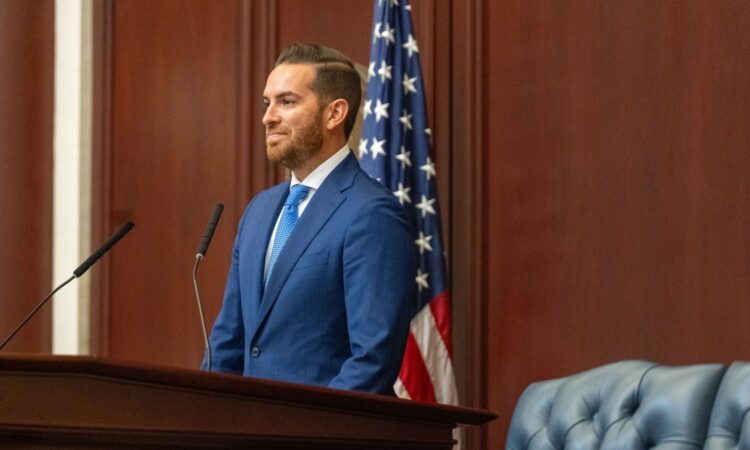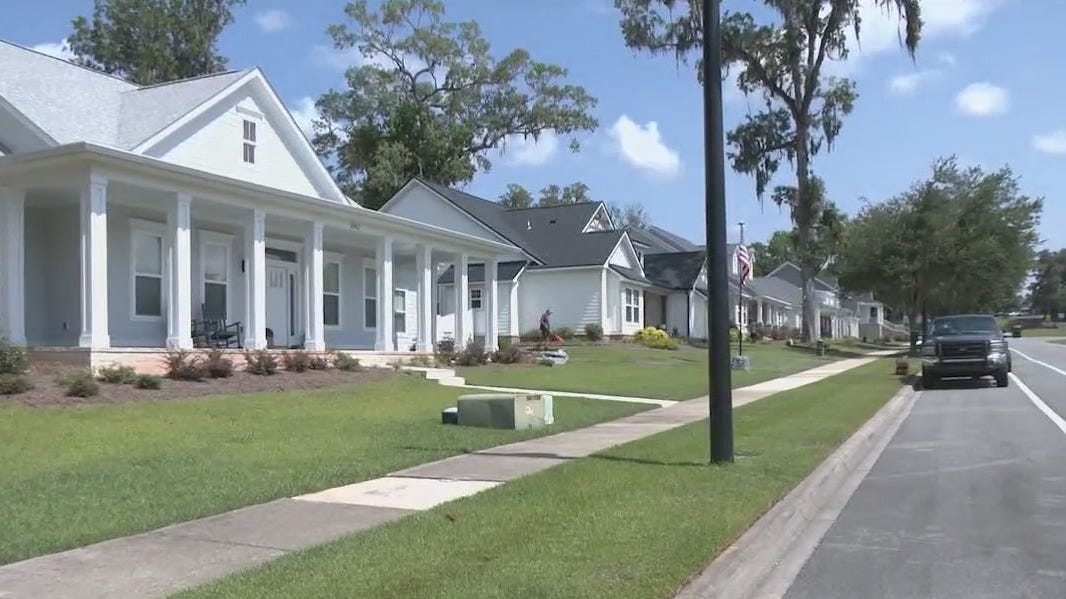
Most are measures that would appear on the 2026 general election ballot.

Florida lawmakers debate property tax
A House panel began a review of property taxes as it examines potential changes that could have a significant impact on local governments.
Fox – 35 Orlando
- The Florida House has introduced eight bills aimed at cutting property taxes, primarily for property owners with a homestead exemption.
- These proposals, some of which would appear on the 2026 ballot, respond to Gov. Ron DeSantis’ call for property tax relief.
- Notable, all proposed tax cuts would exclude the portion of taxes that fund K-12 public schools.
Answering Gov. Ron DeSantis’ call to slash property taxes, the Florida House released a series of bills designed to do so, mostly for those with a homestead exemption.
In an Oct. 16 memo to members, Speaker Daniel Perez outlined the eight bills filed, which range from eliminating taxes for all homestead property owners to lowering the cap on growth in assessed value.
Most are measures that would appear on the 2026 general election ballot.
Perez justified the multi-pronged approach, noting it would be voters who have the final say: “If we have faith in the voters to elect us, we should not be afraid to let them be a part of the conversation about the taxes they pay.”
He added: “It is our position that the House does not need to limit itself in presenting one single plan, but instead allow the people of Florida the ability to choose some, all, or none of the proposals on the 2026 ballot.”
Although the proposals vary, they all exempt the portion of the property tax that goes to K-12 school funding. They also ban local governments from cutting law enforcement spending; state law already bars cities and counties from cutting police funding without state approval.
DeSantis has kept up a steady drumbeat the last several months about the unfairness of property taxes and has stated his desire to eliminate them altogether, at least for those with homestead exemptions.
Because all of the plans still keep taxes for schools, they would all fall short of that goal. A request for comment on the House plan to DeSantis’ press office is pending.
The plan provides a peek at what major property tax cuts could look like, but many steps remain before the measures reach the ballot. The 2026 legislative session will begin Jan. 12, and the Senate will weigh in with its own proposals.
“The Senate is reviewing the proposals put forward by the House this afternoon,” spokesperson Katie Betta said, adding that Senate President Ben Albritton didn’t yet have a comment on the bills.
This past year’s session was extended 45 days as Perez clashed with DeSantis over tax cuts. Perez preferred a large sales tax cut while DeSantis feared it would crowd out his push for property tax cuts.
Moreover, for any proposal to appear on next year’s ballot, it would need to get 60% of the votes in each chamber of the Legislature, and for it to become law 60% of voters would need to approve it on the statewide ballot.
Here’s a look at the House proposals:
- HB 201 – All non-school property taxes for those with homestead exemptions would be eliminated starting Jan. 1, 2027.
- HB 203 – Non-school property taxes for homestead properties would be phased out over 10 years. The exemption would increase $100,000 in assessed property value each year.
- HB 205 – Non-school property taxes for residents over 65 with a homestead exemption would be eliminated.
- HB 207 – The current homestead exemption for non-school taxes would be increased to 25% of the assessed value of the home.
- HB 209 – Those with a homestead exemption who also have property insurance will see their exemption increased by $100,000.
- HB 211 – The $500,000 cap on transferring the homestead exemption from one property to another would be eliminated.
- HB 213 – The current 3% cap on the annual growth in assessed value for homestead properties and 10% cap on non-homestead properties would be lowered to 3% over three years for homestead properties and 15% over three years for non-homestead properties.
- HB 215 – Any vote to increase a property tax rate would require a two-thirds vote.
(This story was updated to add new information.)
Gray Rohrer is a reporter with the USA TODAY Network-Florida Capital Bureau. He can be reached at grohrer@gannett.com. Follow him on X: @GrayRohrer.




